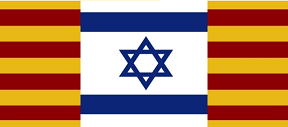http://en.wikipedia.org/wiki/Operation_Orchard

Operation Orchard was an Israeli airstrike on a target in the Deir ez-Zor region of Syria carried out just after midnight on September 6, 2007. According to news reports, the raid was carried out by the Israeli Air Force's 69th Squadron of F-15Is, F-16s, and an ELINT aircraft; a total of as many as eight aircraft. The fighters were equipped with AGM-65 Maverick missiles, 500lb bombs, and external fuel tanks. One report indicated that a team of IAF Shaldag commandos arrived at the site the day before so that they could highlight the target with laser beams.
Pre-strike raid
According to The Sunday Times, members of Israel's Sayeret Matkal covertly raided the suspected
Syrian nuclear facility before the September 6 airstrike and brought nuclear material back to Israel. Once the material was tested and confirmed to have come from North Korea, the US gave Israel approval for an attack. The Times also reports that the mission was "personally directed" by Israeli Defense Minister Ehud Barak.
Target
CNN first reported that the airstrike targeted weapons "destined for Hezbollah militants" and that the strike "left a big hole in the desert." On September 13 The Washington Post reported that US and Israeli intelligence have gathered information on a nuclear facility constructed in Syria with North Korean aid, and that the target was a "facility capable of making unconventional weapons." According to The Sunday Times, the target was a cache of nuclear materials from North Korea. A North Korean ship had docked in Syria just a few days earlier, and after the strike North Korea publicly condemned the raid; North Korea rarely comments on international events. The ship was later identified as the Al Hamed, a 1,700-tonne cargo ship that was previously owned by a North Korean business. The ship registered itself as South Korean when it traveled through the Suez canal and docked at the Syrian port Tartous on July 28. It returned on September 3, when it was said to have unloaded cement. Records do not indicate where the vessel is as of September 17.
This reporting was challenged on September 24 by The Raw Story, which said that US intelligence officials told them that the actual target were North Korean No-Dong missiles. According to the report, the missiles were an "older generation" that Syria was attempting to "chemically weaponize."
Reaction
Syria responded by saying that its anti-aircraft weapons had fired at Israeli planes, which bombed empty areas in the desert. Israel did not comment on the incident, although Israeli Prime Minister Ehud Olmert did say that "The security services and Israeli defence forces are demonstrating unusual courage. We naturally cannot always show the public our cards." Israeli papers were banned from doing their own reporting on the airstrike. On September 16 the head of Aman, Amos Yadlin, told a parliamentary committee that Israel regained its "deterrent capability." US Defense Secretary Robert Gates was asked if North Korea was helping Syria in the nuclear realm, but replied only that "we are watching the North Koreans very carefully. We watch the Syrians very carefully." The first public acknowledgment by an Israeli official came on September 19 when opposition leader Benjamin Netanyahu said that had backed the operation and congratulated Prime Minister Olmert. Netanyahu advisor Uzi Arad later told Newsweek "I do know what happened, and when it comes out it will stun everyone."
On September 17 Prime Minister Olmert announced that he was ready to make peace with Syria "without preset conditions and without ultimatums." According to a poll done by the Dahaf Research Institute, Olmert's approval rating rose from 25% to 35% after the airstrike.


